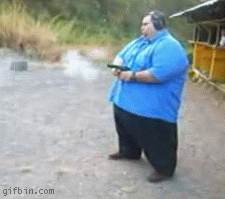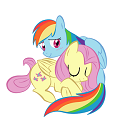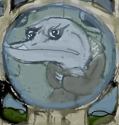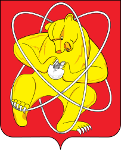|
To piggyback on the Vietnam book discussion, if you want a good (relatively short) single volume on the French involvement to go along with the US focused involvement books the others mentioned, Bernard Fall's Street Without Joy is outstanding.
|
|
|
|

|
| # ? May 16, 2024 11:30 |
|
Morholt posted:Interesting how it makes a big deal out of the various communist resistance movements but doesn't even mention the Warsaw Uprising. Oh Russia
|
|
|
|
Ghost of Mussolini posted:Yeah boiiiiii math owns (and physics etc) It's the same idea behind this, but with massive piles of dirt and what not: 
|
|
|
|
Morholt posted:Interesting how it makes a big deal out of the various communist resistance movements but doesn't even mention the Warsaw Uprising. Except it... Does though? It specifically mentions it.
|
|
|
|
I've always thought the difference between forts and castles was pretty clear. Castles are intended to control an entire region by their presence and garisson an army, as well as provide a seat of power for the local authority. Forts are basically just a hardened position where an army can camp out and don't have all the logistical and political clout that castles imply.
|
|
|
|
|
A castle has a clear extra millitary function but a fort does also but to a lesser degree?
|
|
|
|
Rabhadh posted:A castle has a clear extra millitary function but a fort does also but to a lesser degree? Castles seem to be a military hardpoint, a political focus AND on top of all that, a residential area. Forts seem to be purely military in role and sometimes political in placement.
|
|
|
|
veekie posted:Castles seem to be a military hardpoint, a political focus AND on top of all that, a residential area.
|
|
|
|
Not a hard and fast definition and more of a sliding scale? Defensibility can make habitability a problem and vice versa. A place of trade and habitation needs easy accessibility, while a fortification wants a much more controlled mobility, and uses up a lot of space with barriers and defenses.
|
|
|
|
Well, some castles also basically became towns of their own.
|
|
|
|
cheerfullydrab posted:What really is the difference between a castle and a fort? Be honest, there actually isn't any. Isn't fort short for "fortification"? Like, a castle is a type of fortification. The last few pages prompted me to check out some famous fortifications.  This is Douaumont, one of the three fortresses at Verdun. At a glance, it's similar to those star forts posted on the other page, without the star parts. That's understandable, with modern war and all that, but I'm a bit puzzled about how it managed to hold out during the Great War. I can't really find any ground-level photographs of the forts at Verdun, probably because active military installations don't usually get photographed by civilians, and the little battle there did them in. There seems to be a lot of open space in that fort, which I can't imagine was pleasant under artillery barrage. I just don't see how it would have served better than the trenches.
|
|
|
|
Slim Jim Pickens posted:This is Douaumont, one of the three fortresses at Verdun. At a glance, it's similar to those star forts posted on the other page, without the star parts. That's understandable, with modern war and all that, but I'm a bit puzzled about how it managed to hold out during the Great War. quote:it has a total surface area of 30,000 square metres and is approximately 400 metres long, with two subterranean levels protected by a steel reinforced concrete roof 12 metres thick resting on a sand cushion. These improvements had been completed by 1903. The entrance to the fort was at the rear. Two main tunnels ran east-west, one above the other, with barracks rooms and corridors to outlying parts of the fort branched off of the main tunnels. The fort was equipped with numerous armed posts, a 155 mm rotating/retractable gun turret, a 75 mm gun rotating/retractable gun turret, four other 75 mm guns in flanking "Bourges Casemates" that swept the intervals and several machine-gun turrets. Entry into the moat which was surrounding the fort was interdicted by Hotchkiss anti-personnel revolving cannons located in wall casemates or "Coffres" present at each corner.
|
|
|
|
Douaumont specifically is famous because it didn't hold out - it was poorly manned and captured virtually by an accident by less than 100 Germans. When the French counterattacked at Verdun, the fort proved itself to be more useful because it was aided by the general decisive force of trench warfare - artillery fire. In the end, it perished due to the same reason - artillery fire, despite being a massive complex hidden underneath layers of solid material; the force of the Frenc attack made it impossible to maintain connection between the fortress and the rest of the front. Basically what I'm getting at, with WWI the answer is always artillery.
|
|
|
|
steinrokkan posted:Basically what I'm getting at, Saying that it was only with artillery that Douaumont could be useful is trivially true. A modern fortification is predicated upon the active defense of artillery, in addition to the passive defense of brick and earth (or, in this case, concrete and steel). That's half of the reason that they're shaped the way they are, to put guns in the right places. quote:Douaumont specifically is famous because it didn't hold out - it was poorly manned and captured virtually by an accident by less than 100 Germans. ...And then his commanding officer, who was the last to arrive on the scene, took the credit and got famous, while that guy remained unknown until the 30s. Dang. HEY GUNS fucked around with this message at 13:12 on Dec 23, 2013 |
|
|
|
*cough* Vietnam (and to a lesser extent the Korean War) *cough*
|
|
|
|
Davincie posted:*cough* Vietnam (and to a lesser extent the Korean War) *cough* Besides, I thought Dien Bien Phu was won by the brilliant utilization of artillery after the French picked a position at the bottom of a valley out of overconfidence. Edit: I am reading about this and the French had only thirty guns. why would anyone do this what are you thinking Edit 2: I will have to spend a while back in the US due to an emergency which is entirely my fault, but at least I am not those guys! HEY GUNS fucked around with this message at 13:35 on Dec 23, 2013 |
|
|
|
Slim Jim Pickens posted:
This is quite a good picture of fort Doaumont before and after the battle of Verdun. What artillery sees, artillery destroys. 
|
|
|
|
a travelling HEGEL posted:Besides, I thought Dien Bien Phu was won by the brilliant utilization of artillery after the French picked a position at the bottom of a valley out of overconfidence. Dien Bien Phu is a really interesting study in hubris, a bad operational concept, and all-round courage and determination. iirc, the reason the base was built in the valley was because that was the only place you could build an airfield. The entire concept of operations that DBP was meant to test was the "hedgehog" concept where you built a major patrol base that would tie down enemy forces and allow you to send out infantry in force to interdict Viet Minh lines of communication and supply. This meant building an airhead, since ground supply routes were too vulnerable and too long. Though obviously this idea broke down pretty quickly once Giap started massing troops against DBP and once the French lost the strongpoints overlooking the airfield. Charles Piroth, the French artillery commander at DBP committed suicide with a hand grenade to 'apologize' for his failure to destroy the Viet Minh artillery during the battle. Bernard Fall's-Hell in a Very Small Place is probably the best book written on the battle, and is well worth anyone's time.
|
|
|
|
What about the complexes that are called "forts" in India, such as the Red Fort in Delhi? What's the difference between the castles built by Edward I on the Welsh border and the forts built in the Scottish highlands after the Jacobite risings in the 18th century? Forts on the American frontier could be political centers, just as those on the frontiers of ancient Rome. What about the constantly shifting line between a hill fort and a castle? It seems to me that there are fortifications, and some of those get to be called castles, mostly the ones built by Europeans between the 11th and 16th century. However there isn't an actual difference between a "castle" and other subsets of fortifications.
|
|
|
|
Castle is a medieval English name for a stone fort, imported by Normans. As such it should be used for medieval forts only and I don't read any other technical difference to it. Other languages may have other uses for castrum or entirely different words for types of fortification.
|
|
|
|
Slavvy posted:Castles are intended to control an entire region by their presence   Anyway, semantics.
|
|
|
|
a travelling HEGEL posted:Edit: I am reading about this and the French had only thirty guns. They're just Asian colonials, it's not a big deal. Plus, we're kind of tired of real war anyway.
|
|
|
|
Reported in GBS, but The inventor of the Kalashnikov assault rifle, Mikhail Kalashnikov, has died aged 94. http://www.bbc.co.uk/news/world-europe-25497013
|
|
|
|
http://www.independent.co.uk/news/people/news/mikhail-kalashnikov-dead-at-94-ak47-inventor-had-been-in-hospital-for-a-month-9022861.htmlquote:Mikhail Kalashnikov, inventor of the world's most popular rifle, has died. He was 94. EDIT: ^^^ gah
|
|
|
|
Bacarruda posted:iirc, the reason the base was built in the valley was because that was the only place you could build an airfield. The entire concept of operations that DBP was meant to test was the "hedgehog" concept where you built a major patrol base that would tie down enemy forces and allow you to send out infantry in force to interdict Viet Minh lines of communication and supply. This meant building an airhead... Am I simply missing something because I hardly know anything about 20th century technology and tactics? Is it hindsight? Or is it: Godholio posted:They're just Asian colonials, it's not a big deal. Plus, we're kind of tired of real war anyway. Darth Brooks posted:Reported in GBS, but The inventor of the Kalashnikov assault rifle, Mikhail Kalashnikov, has died aged 94. 
HEY GUNS fucked around with this message at 19:14 on Dec 23, 2013 |
|
|
|
a travelling HEGEL posted:Christ, build an airfield somewhere else in the same general region. Dien Bien Phu is by far the most prominent piece of flat land in a mountainous, fractured terrain extending dozens of miles in all directions. Also, the air strip was already there, inherited from the Japanese and with a lot of assets that couldn't be easily transported.
|
|
|
|
a travelling HEGEL posted:OK, that sounds like a good idea. But airfield or not, can't you take one look at that ground and realize that you are boned, just flat boned, if your enemy gets access to those heights, especially if you have very few guns, especially especially if few of those guns are heavy? Christ, build an airfield somewhere else in the same general region. You're assuming that the French looked at those heights and went "yup, the Vietnamese will be able to haul guns over there" Which they didn't, hence the loss.
|
|
|
|
steinrokkan posted:Dien Bien Phu is by far the most prominent piece of flat land in a mountainous, fractured terrain extending dozens of miles in all directions. Also, the air strip was already there, inherited from the Japanese and with a lot of assets that couldn't be easily transported.
|
|
|
|
The French thought it was impossible for the Vietnamese to haul artillery up there as there were no roads. What they did not count on was the Vietnamese dismantling the artillery and bring them piece by piece on foot for however far it was (quite a distance, forgot the exact length).
|
|
|
Davincie posted:The French thought it was impossible for the Vietnamese to haul artillery up there as there were no roads. What they did not count on was the Vietnamese dismantling the artillery and bring them piece by piece on foot for however far it was (quite a distance, forgot the exact length). They didn't think the Viet Minh could supply the guns with ammunition. Its been awhile since I've read Hell in a Small Place but I think the French also refused to patrol too far outside of the base and they ignored reports from outlying patrols(Montenegards?) that observed or came under fire from the Viet Minh moving these guns and men into position. When the barrage started, they didn't think the Viet Minh would be able to deliver sustained accurate fire and that French counter battery fires would be sufficient to knock out these guns. They were also hoping for an American intervention in the form of strategic/heavy bombers that never came about.
|
|
|
|
|
The Viets don't have many big guns, but if somehow they do have heavy artillery they'll never get it up the mountainsides, and if somehow they do get it on top of the mountains they'll never be able get enough shells up there, and if somehow they do manage to keep the guns resupplied their accuracy is so terrible it'll never have much of an effect, and if somehow they do accurately shoot at us we'll just destroy them with our counterbattery fire, and if somehow they are NOT destroyed by our counterbattery fire, the Americans will save us somehow.
|
|
|
|
If you like Dien Bien Phu, you'll love the Battle of Harper's Ferry in the ACW. Confederate soldiers dragged artillery by hand up nearly vertical slopes surrounding the town of Harper's Ferry and proceeded to blast the poo poo out of its Union garrison, which was forced to lay down its arms. It was the largest surrender of American troops until Bataan. The Confederate soldiers were then force marched north in time to fight at the Battle of Antietam. http://en.wikipedia.org/wiki/Battle_of_harpers_ferry 12,419 Union prisoners taken. 39 Confederates killed.
|
|
|
|
That makes me wonder: was slavery used to support the southern war effort logistically? Like, it seems that if you don't have enough horses or mules or whatever, you have this enormous slave labour force handy to carry things for you so the soldiers can do more soldiering.
|
|
|
|
|
The slaves were critically needed at the farms to support the Southern economy. Remember that a huge portion of able-bodied men were at the front, fighting, and something had to pay for that fight. If you take away any more of the workforce (and while I'm no expert on work organisation in the CSA, I recall hearing many slave-owners did the menial jobs alongside their slaves, so the hands in the fields are already taken away), the cotton crops are just going to fail. The South had enough problems as it were (e.g. with getting the shipments to Europe past the Union blockade), hauling slaves away to anywhere so that they could build fortifications or whatever would just make things worse.
|
|
|
|
Slavvy posted:That makes me wonder: was slavery used to support the southern war effort logistically? Like, it seems that if you don't have enough horses or mules or whatever, you have this enormous slave labour force handy to carry things for you so the soldiers can do more soldiering. That's what the soldiers are for. To carry extra poo poo and you don't have to feed them any more of the already meager rations. The North, on the other hand was all about using slave labor. On Grant's Canal, for instance, slaves coming to the Union army to be freed were "impressed" into digging a trench to reroute the Mississippi River around Vicksburg. Point is, being a slave in 1863 sucked no matter what side you were working for. DasReich fucked around with this message at 21:48 on Dec 23, 2013 |
|
|
|
Yes, slaves were used extensively by Confederate forces as laborers.
|
|
|
|
Nenonen posted:Castle is a medieval English name for a stone fort, imported by Normans. As such it should be used for medieval forts only and I don't read any other technical difference to it. Other languages may have other uses for castrum or entirely different words for types of fortification.   It does seem a bit nebulous- and I mean, when'd the forts stop being medieval and start being renaissance? What about vanity castles built in much later times? "why does it matter"
|
|
|
|
MassivelyBuckNegro posted:They didn't think the Viet Minh could supply the guns with ammunition. Its been awhile since I've read Hell in a Small Place but I think the French also refused to patrol too far outside of the base and they ignored reports from outlying patrols(Montenegards?) that observed or came under fire from the Viet Minh moving these guns and men into position. When the barrage started, they didn't think the Viet Minh would be able to deliver sustained accurate fire and that French counter battery fires would be sufficient to knock out these guns. Correct. They basically did the "lalalala can't hear you" routine when the first reports of artillery fire came in. There was a month and a half between the first encounter with Viet Minh artillery and the first full on barrage (when Beatrice fell in the middle of March), and they basically did nothing to prepare for the possibility of artillery on the high ground in that interval. The last piece to the puzzle is that in addition to the artillery the Viet Minh also brought a shitload of machine guns and medium AAA into the hills, so on top of the artillery closing the airfield making any air-land supply impossible the AAA made airdrops extremely costly as well as increasingly ineffective. The intensity of fire drove the airdrops to a higher altitude, which meant less and less of the supplies airdropped actually got to the garrison, something that was compounded by the shrinking perimeter.
|
|
|
|
Koramei posted:
Yeah, I think it's really a circular logic thing. "Does that look like a castle? Well, we'll call it a castle."
|
|
|
|

|
| # ? May 16, 2024 11:30 |
|
Koramei posted:and I mean, when'd the forts stop being medieval and start being renaissance? HEY GUNS fucked around with this message at 00:19 on Dec 24, 2013 |
|
|






























